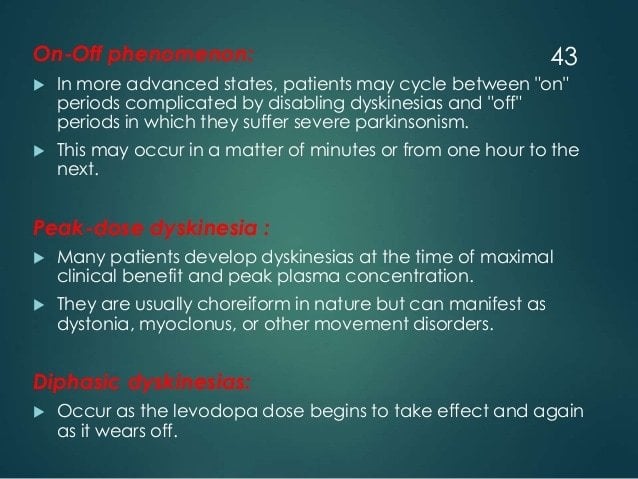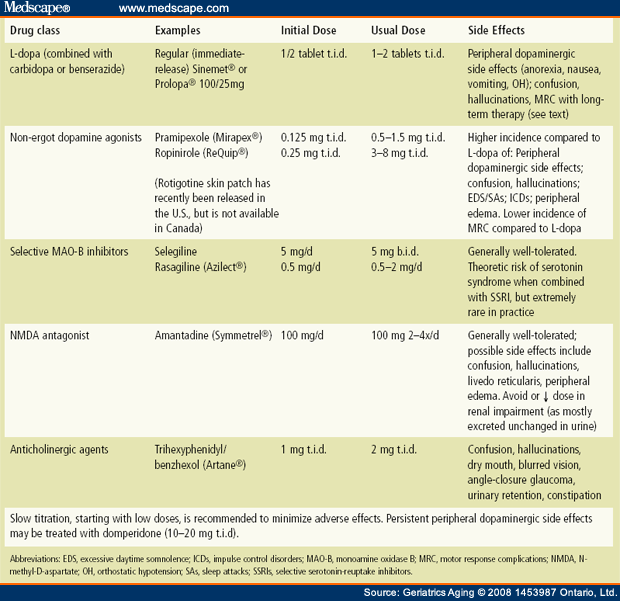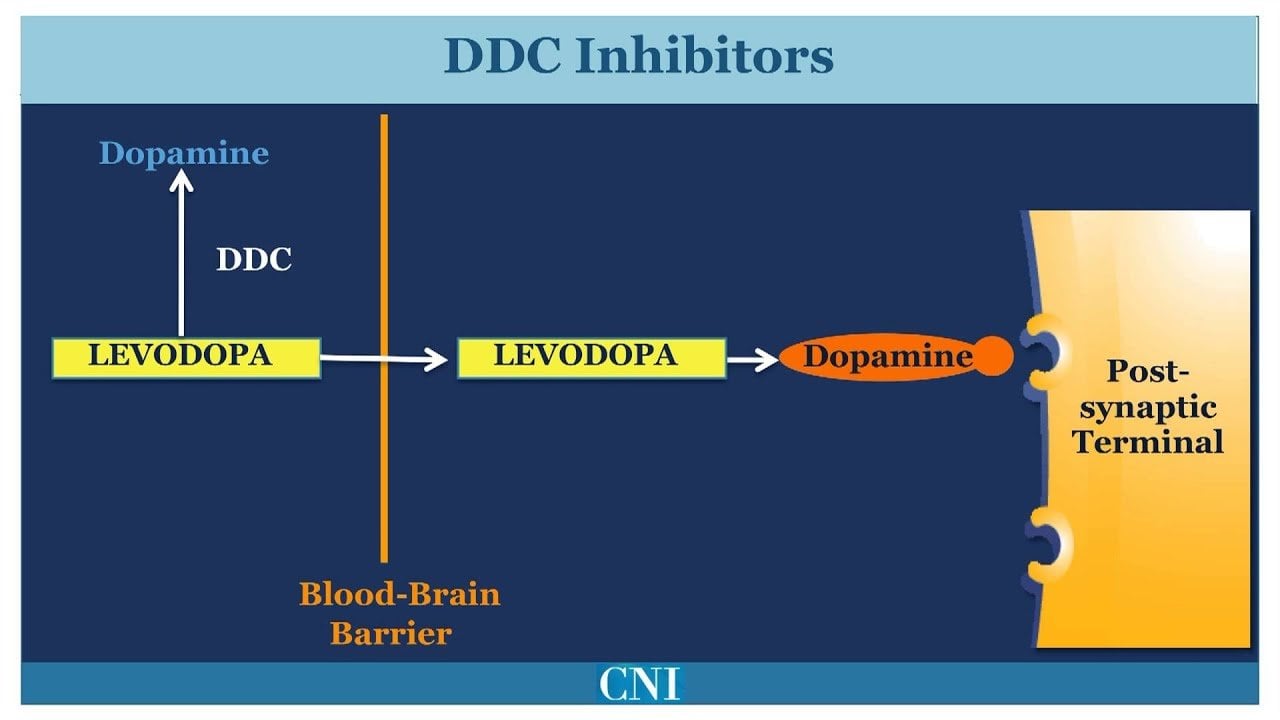Stay Safe With Your Medicines
Read all labels carefully.
- Tell all your health care providers about all the medicines and supplements you take.
- Know all the medicines and foods youâre allergic to.
- Review any side effects your medicines can cause. Most reactions will happen when you start taking something, but thatâs not always the case. Some reactions may be delayed or may happen when you add a drug to your treatment. Call your doctor right away about anything unusual.
- Use one pharmacy if possible. Try to fill all your prescriptions at the same location, so the pharmacist can watch for drugs that might interact with each other.
- You can use online tools to see if any of your medicines wonât work well together.
You have the right and responsibility to know what medications your doctor prescribes. The more you know about them and how they work, the easier it will be for you to control your symptoms. You and your doctor can work together to create and change a medication plan. Make sure that you understand and share the same treatment goals. Talk about what you should expect from medications so that you can know if your treatment plan is working.
Show Sources
Levodopa Side Effects: Dyskinesia
The side effects of levodopa can be somewhat difficult to distinguish from the many symptoms of the disease itself, since almost everyone with advanced Parkinsons eventually winds up on one of the levodopa-containing drugs. Nonetheless, common adverse reactions firmly linked to levodopa include dizziness, insomnia, and hypotension . But the most obvious and characteristic side effect is dyskinesia. Many people have seen video of Michael J. Fox displaying prominent dyskinesias, and these are commonly misunderstood to be symptoms of the disease itself rather than a drug side effect. Not all patients develop dyskinesias, but most do if they remain on levodopa long enough. Dyskinesias can vary significantly in severity and in the nature of the involuntary movements.
Many patients experience dyskinesia when levodopa levels peak, shortly after taking a levodopa-containing pill others experience diphasic dyskinesias, which occur when levodopa levodopa levels are changing rapidly . Open source image gratefully acknowledged, taken from Clinical Features, Pathophysiology, and Treatment of Levodopa-Induced Dyskinesias in Parkinsons Disease.
Thanks For Signing Up
We are proud to have you as a part of our community. To ensure you receive the latest Parkinsons news, research updates and more, please check your email for a message from us. If you do not see our email, it may be in your spam folder. Just mark as not spam and you should receive our emails as expected.
Recommended Reading: Does Vitamin B12 Help Parkinson’s
How Is Parkinsons Disease Treated
There is no cure for Parkinsons disease. However, medications and other treatments can help relieve some of your symptoms. Exercise can help your Parkinsons symptoms significantly. In addition, physical therapy, occupational therapy and speech-language therapy can help with walking and balance problems, eating and swallowing challenges and speech problems. Surgery is an option for some patients.
Diagnosis Of Parkinsons Disease

A number of disorders can cause symptoms similar to those of Parkinson’s disease. People with Parkinson’s-like symptoms that result from other causes are sometimes said to have parkinsonism. While these disorders initially may be misdiagnosed as Parkinson’s, certain medical tests, as well as response to drug treatment, may help to distinguish them from Parkinson’s. Since many other diseases have similar features but require different treatments, it is important to make an exact diagnosis as soon as possible.
There are currently no blood or laboratory tests to diagnose nongenetic cases of Parkinson’s disease. Diagnosis is based on a person’s medical history and a neurological examination. Improvement after initiating medication is another important hallmark of Parkinson’s disease.
You May Like: Voice Amplifiers For Parkinson’s
Parkinsons And Difficulty Sleeping
More than 75 percent of people with Parkinsons disease report sleep problems. You may experience restless sleep, where you wake up frequently during the night.
You may also experience sleep attacks, or episodes of sudden sleep onset, during the day. Talk with your doctor about treatment methods, such as taking an over-the-counter or prescription sleep aid to help you regulate your sleep.
Take Your Parkinsons Medications As Prescribed
Take your medications exactly as prescribed by your doctor in the right dose, and at the right time of day, and in the right way. Youll be given instructions when youre first prescribed a drug. Some medications are meant to be taken on an empty stomach, while others should be taken with food.
Parkinsons patients who have trouble remembering when and in what dose to take their drugs can:
- Set a medication alarm on a smart phone, for instance. There are even special apps to remind you when to take your meds.
- Have their pills organized into a special medication box so they dont have to think about what to take each time.
- Many pharmacies are able to put together compliance medicine packages that organize your drugs in a way that makes it easier to take them at the right time.
- When you take your meds, mark it off on a calendar.
- If necessary, a partner or carer can help you remember to take your drugs.
Also Check: Does Sam Waterston Have Parkinsons
What Causes Parkinsons Disease
Parkinsons disease occurs when nerve cells in an area of the brain called the substantia nigra become impaired or die. These cells normally produce dopamine, a chemical that helps the cells of the brain communicate . When these nerve cells become impaired or die, they produce less dopamine. Dopamine is especially important for the operation of another area of the brain called the basal ganglia. This area of the brain is responsible for organizing the brains commands for body movement. The loss of dopamine causes the movement symptoms seen in people with Parkinsons disease.
People with Parkinsons disease also lose another neurotransmitter called norepinephrine. This chemical is needed for proper functioning of the sympathetic nervous system. This system controls some of the bodys autonomic functions such as digestion, heart rate, blood pressure and breathing. Loss of norepinephrine causes some of the non-movement-related symptoms of Parkinsons disease.
Scientists arent sure what causes the neurons that produce these neurotransmitter chemicals to die.
Advantages Of Comt Inhibitors
When used with levodopa, COMT inhibitors can reduce the daily off time and increase the on time.
In many cases, the dose and frequency of levodopa can also be reduced.
The terms on/off or motor fluctuations refer to the period when people can no longer rely on the smooth and even symptom control that their drugs once gave them.
Read Also: On Off Phenomenon
Constipation And Digestive Issues
As Parkinsons disease progresses, your digestive tract will slow down and function less efficiently. This lack of movement may lead to increased bowel irritability and constipation.
In addition, certain medications often prescribed for Parkinsons disease, such as anticholinergics, can cause constipation. Eating a balanced diet with plenty of vegetables, fruits, and whole grains is a good first step remedy.
Fresh produce and whole grains also contain a great deal of fiber, which can help prevent constipation. Fiber supplements and powders are also an option for those with Parkinsons.
Be sure to ask your doctor how to gradually add fiber powder to your diet. This will ensure you dont have too much too quickly and make constipation worse.
Dont Miss: What Is Parkinson Disease In Layman Terms
What Is Apomorphine Used For
Apomorphine injection is a prescription medicine used to treat acute, intermittent episodes of poor mobility called ” off ” episodes in people with advanced Parkinson’s disease.
Apomorphine sublingual film is a prescription medicine used to treat short-term , intermittent off episodes in people with Parkinson’s disease.
It is not known if apomorphine is safe and effective in children.
Recommended Reading: Parkinson’s Double Vision
A Review On Parkinsons Disease Treatment
110521038Tori K. Lee Eva L. Yankee
Department of Biology, Angwin, CA 94508, USA .
Received:First Decision:Revised:Accepted:Available online:Academic Editors:Copy Editor:Production Editor:
© The Author 2021. Open Access This article is licensed under a Creative Commons Attribution 4.0 International License , which permits unrestricted use, sharing, adaptation, distribution and reproduction in any medium or format, for any purpose, even commercially, as long as you give appropriate credit to the original author and the source, provide a link to the Creative Commons license, and indicate if changes were made.
Drugs For Parkinsons: The Shocking Side Effects

There are 2 main categories of drugs for Parkinsons Disease, and both have powerful side effects: levodopa, which makes many patients shaky with dyskinesia, and dopamine agonists, which can make turn people into gamblers, sex addicts or hit them with sleep attacks including when theyre driving. This is the story of DA.
At least 1 million people in the US and an estimated 10 million worldwide live with Parkinsons, making it the second most common neurodegenerative disorder . Parkinsons disease, a disorder of the central nervous system, is caused by a degeneration of nerve cells in certain parts of the brain that produce a neurotransmitter called dopamine. Dopamine, commonly known for its role in controlling the brains reward and pleasure center, is partly responsible for starting a circuit of messages that coordinate normal movement.
In the absence of dopamine, the neurons called dopamine receptors in the brains striatum are not adequately stimulated. In simple language, as a persons brain slowly stops producing dopamine, a person has less and less ability to regulate his or her movements, body, and emotions. The result is impaired movement with tremors, slowness, stiffness or balance problems. Lesser known symptoms include depression, apathy and dementia.
Article continues below
Don’t Miss: On-off Phenomenon
Medicines For Parkinson’s Disease
Medicines prescribed for Parkinson’s include:
- Drugs that increase the level of dopamine in the brain
- Drugs that affect other brain chemicals in the body
- Drugs that help control nonmotor symptoms
The main therapy for Parkinson’s is levodopa, also called L-dopa. Nerve cells use levodopa to make dopamine to replenish the brain’s dwindling supply. Usually, people take levodopa along with another medication called carbidopa. Carbidopa prevents or reduces some of the side effects of levodopa therapysuch as nausea, vomiting, low blood pressure, and restlessnessand reduces the amount of levodopa needed to improve symptoms.
People with Parkinson’s should never stop taking levodopa without telling their doctor. Suddenly stopping the drug may have serious side effects, such as being unable to move or having difficulty breathing.
Other medicines used to treat Parkinsons symptoms include:
- Dopamine agonists to mimic the role of dopamine in the brain
- MAO-B inhibitors to slow down an enzyme that breaks down dopamine in the brain
- COMT inhibitors to help break down dopamine
- Amantadine, an old antiviral drug, to reduce involuntary movements
- Anticholinergic drugs to reduce tremors and muscle rigidity
How Is Parkinsons Disease Diagnosed
Diagnosing Parkinsons disease is sometimes difficult, since early symptoms can mimic other disorders and there are no specific blood or other laboratory tests to diagnose the disease. Imaging tests, such as CT or MRI scans, may be used to rule out other disorders that cause similar symptoms.
To diagnose Parkinsons disease, you will be asked about your medical history and family history of neurologic disorders as well as your current symptoms, medications and possible exposure to toxins. Your doctor will look for signs of tremor and muscle rigidity, watch you walk, check your posture and coordination and look for slowness of movement.
If you think you may have Parkinsons disease, you should probably see a neurologist, preferably a movement disorders-trained neurologist. The treatment decisions made early in the illness can affect the long-term success of the treatment.
Recommended Reading: Similar To Parkinsons
Increased Feelings Of Anxiety Or Depression
Anxiety and depression have been linked to Parkinsons. In addition to movement problems, the disease can also have an impact on your mental health. Its possible that changes in your emotional well-being can be a sign of changing physical health as well.
If you are more anxious than usual, have lost interest in things, or feel a sense of hopelessness, talk to your doctor.
Dosage For Parkinsons Disease And Parkinsonism
Sinemet is approved to treat Parkinsons disease and certain cases of parkinsonism, which is a condition thats similar to PD.
For these uses, the recommended starting dosage of Sinemet is typically one tablet of 25 mg carbidopa / 100 mg levodopa, taken three times per day.
In some cases, your doctor may have you start taking one tablet of 10 mg carbidopa / 100 mg levodopa, three to four times per day. But this dose may not contain enough carbidopa to reduce your symptoms.
If your starting dosage of Sinemet doesnt reduce your symptoms, your doctor may have you add a tablet to one or more of your doses. For example, your doctor may recommend that you add a 25 mg carbidopa / 100 mg levodopa tablet or a 10 mg carbidopa / 100 mg levodopa tablet, either every day or every other day.
The maximum recommended daily dose of Sinemet is eight tablets of either:
- Sinemet 10 mg/ 100 mg, or
- Sinemet 25 mg / 100 mg
Regular dosing interval
Sinemet should be taken at a regular dosing interval. A dosing interval is how often you should take a medication so that its most effective. Your dosing interval depends on how many times per day youre taking the drug. Spacing out your doses with an even dosing interval helps keep the amount of Sinemet in your body consistent over time. This consistency can help reduce your symptoms.
Dosage when switching from levodopa
You May Like: Signs Of Early Onset Parkinsons
You May Like: Cleveland Clinic Parkinson’s Bicycle Study 2017
What Is Parkinsons Disease
Parkinsons disease is a progressive disease. It starts slowly, often with a minor tremor. But over time, it can affect everything from speech to gait to cognitive abilities.
While treatments are becoming more advanced, theres still no cure for Parkinsons disease. An important part of a successful Parkinsons treatment plan is recognizing and managing secondary symptoms those that affect day-to-day life.
Here are a few of the more common secondary symptoms and what you can do to help manage them.
Side Effects Of Medication
All prescribed medication can have potential side effects, including those used to treat Parkinsons.
Many people find their Parkinsons medication works very well when they start taking it, but this may change over time and side effects can develop.
Some things you think are symptoms of Parkinsons may actually be side effects of medication.
Some peoples side effects will have a big impact on their lives and have to be kept under control along with the symptoms.
Read Also: Pfnca Wellness Programs
What Causes Parkinson’s Disease
Parkinsons disease occurs when nerve cells in the basal ganglia, an area of the brain that controls movement, become impaired and/or die. Normally, these nerve cells, or neurons, produce an important brain chemical known as dopamine. When the neurons die or become impaired, they produce less dopamine, which causes the movement problems of Parkinson’s. Scientists still do not know what causes cells that produce dopamine to die.
People with Parkinson’s also lose the nerve endings that produce norepinephrine, the main chemical messenger of the sympathetic nervous system, which controls many functions of the body, such as heart rate and blood pressure. The loss of norepinephrine might help explain some of the non-movement features of Parkinson’s, such as fatigue, irregular blood pressure, decreased movement of food through the digestive tract, and sudden drop in blood pressure when a person stands up from a sitting or lying-down position.
Many brain cells of people with Parkinson’s contain Lewy bodies, unusual clumps of the protein alpha-synuclein. Scientists are trying to better understand the normal and abnormal functions of alpha-synuclein and its relationship to genetic mutations that impact Parkinsons disease and Lewy body dementia.
How Is Parkinsons Treated In The Early Stages

Three main groups of medication are used to treat Parkinsons in the early stages:
- Levodopa : is converted into dopamine in the brain.
- Dopamine agonists: stimulate the nerve receptors responsible for the uptake of dopamine.
- MAO-B inhibitors : block the breakdown of dopamine in the brain.
The medications are usually taken in tablet form. Some dopamine agonists are also available as patches.
In the early stages, some people with mild symptoms cope just fine without medication. If at some stage the symptoms become too much of a problem, levodopa and dopamine agonists are the main medication options. They work slightly differently to each other, and some products may cause side effects more often or have worse side effects than others. But both are very effective in the early stages of the illness. That helps many people with Parkinsons to live a fairly symptom-free life for at least a few years.
Recommended Reading: Fitflop Shoes For Parkinson’s
Getting The Most From Your Treatment
- Try to keep your regular appointments with your doctor. This is so your doctor can check on your progress.
- As your condition improves and your body movements become easier, be careful not to overdo physical activities. You should increase your activity gradually to allow your body to adjust to any changes in balance, circulation and co-ordination.
- If you buy any medicines, check with a pharmacist that they are safe to take alongside this medicine. Rasagiline should not be taken with medicines containing sympathomimetics. These are present in some remedies for coughs and colds, and in decongestant nasal sprays and tablets.
- If you are having an operation or dental treatment, tell the person carrying out the treatment that you are taking rasagiline.
- Stopping treatment suddenly can cause problems and your doctor will want you to reduce your dose gradually if this is necessary. Do not stop taking this medicine without speaking with your doctor first.
Dont Miss: Nutrition For Parkinsons Disease